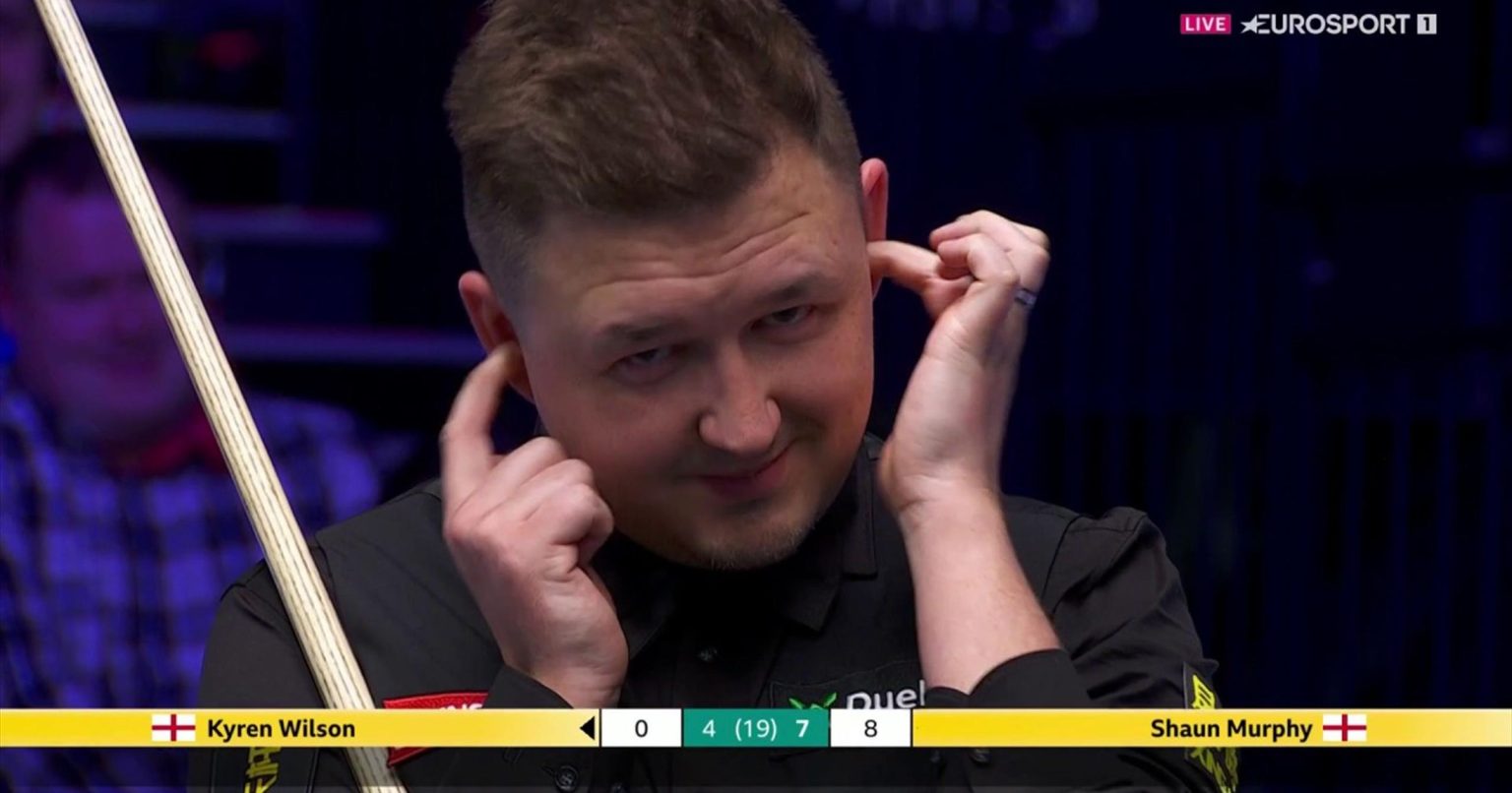Kyren Wilson’s demonstrative act of plugging his ears during the Masters final, as referee Olivier Marteel reiterated the “three-miss rule” warning, ignited a debate about sportsmanship, gamesmanship, and the very essence of snooker’s delicate balance between skill, strategy, and psychological warfare. While Wilson’s action might be interpreted as petulant or disrespectful by some, it also encapsulates the immense pressure cooker environment of a major final and the sometimes controversial nature of a rule designed to prevent deliberate stalling or manipulation of the game. Understanding this incident requires delving into the nuances of the three-miss rule, the specific context of the match, and the broader implications for the sport.
The three-miss rule in snooker is a critical element of gameplay, intended to prevent players from intentionally missing shots to gain a tactical advantage, particularly when snookered behind a different ball. If a player misses the designated ball three consecutive times with a clear path to strike it, the frame is automatically awarded to their opponent. The rule is not simply about missing shots; it hinges on the referee’s judgment of whether a “clear path” existed and whether the player made a genuine attempt to hit the ball. This element of subjectivity, coupled with the high stakes of professional snooker, makes the implementation of the three-miss rule a potential flashpoint for controversy. In situations where the cue ball is close to other balls, determining a “clear path” becomes more complex, adding another layer of pressure on both the referee and the player.
In Wilson’s case, he was locked in a tense battle with Mark Selby in the Masters final, a prestigious tournament known for its intense pressure and significance. The match had already witnessed dramatic swings in momentum, and Wilson, visibly frustrated by a difficult position on the table, found himself facing the prospect of incurring the three-miss penalty. While the referee, Olivier Marteel, is known for his experience and competence, the application of the rule in this particular instance was open to interpretation. The position of the balls, the angles available to Wilson, and the pressure of the moment all contributed to the heightened tension. Wilson’s reaction, plugging his ears while Marteel delivered the warning, can be viewed as a manifestation of this pressure, a desperate attempt to block out the mounting psychological burden and maintain focus on the task at hand.
Wilson’s action sparked immediate discussion among commentators and fans. Some criticized the gesture as unsporting and disrespectful towards the referee, suggesting it undermined the integrity of the game. Others defended Wilson, arguing that his reaction was a natural consequence of the extreme pressure he faced, a human response to a potentially game-changing situation. The incident also raised questions about the application of the three-miss rule itself. Some argued that the rule, particularly in close-quarters situations, is inherently subjective and prone to misinterpretation, potentially influencing the outcome of crucial frames. The debate also touched on the psychological element of snooker, the mind games that often unfold between players, and the extent to which such tactics are acceptable within the spirit of the game.
Beyond the immediate controversy, the incident highlighted the broader tension between maintaining the flow of play and enforcing rules designed to ensure fair competition. Snooker, with its intricate strategic elements and reliance on precise cue ball control, is particularly susceptible to deliberate stalling tactics. The three-miss rule serves as a deterrent against such tactics, but its implementation can be challenging. Balancing the need for clear rules with the fluidity and artistry of the game requires a delicate touch from both referees and players. Wilson’s ear-plugging incident underscores the difficulties of striking this balance, particularly in high-pressure scenarios where emotions run high. It also highlights the evolving nature of sportsmanship, where traditional notions of etiquette are sometimes challenged by the intense demands of professional competition.
The Kyren Wilson incident at the Masters final serves as a microcosm of the complex interplay between rules, pressure, and player behavior in professional snooker. While his gesture might be considered a breach of traditional sporting etiquette, it also serves as a reminder of the immense psychological strain that players endure, especially in high-stakes matches. The incident reignited discussions about the three-miss rule, its application, and its potential impact on the flow and fairness of the game. It also highlighted the ongoing evolution of sportsmanship in the modern era, where the pressures of professional competition can sometimes lead to unconventional and controversial player reactions. The debate surrounding this incident is likely to continue, contributing to a broader conversation about the rules and regulations of snooker and their impact on the sport’s competitive landscape.

